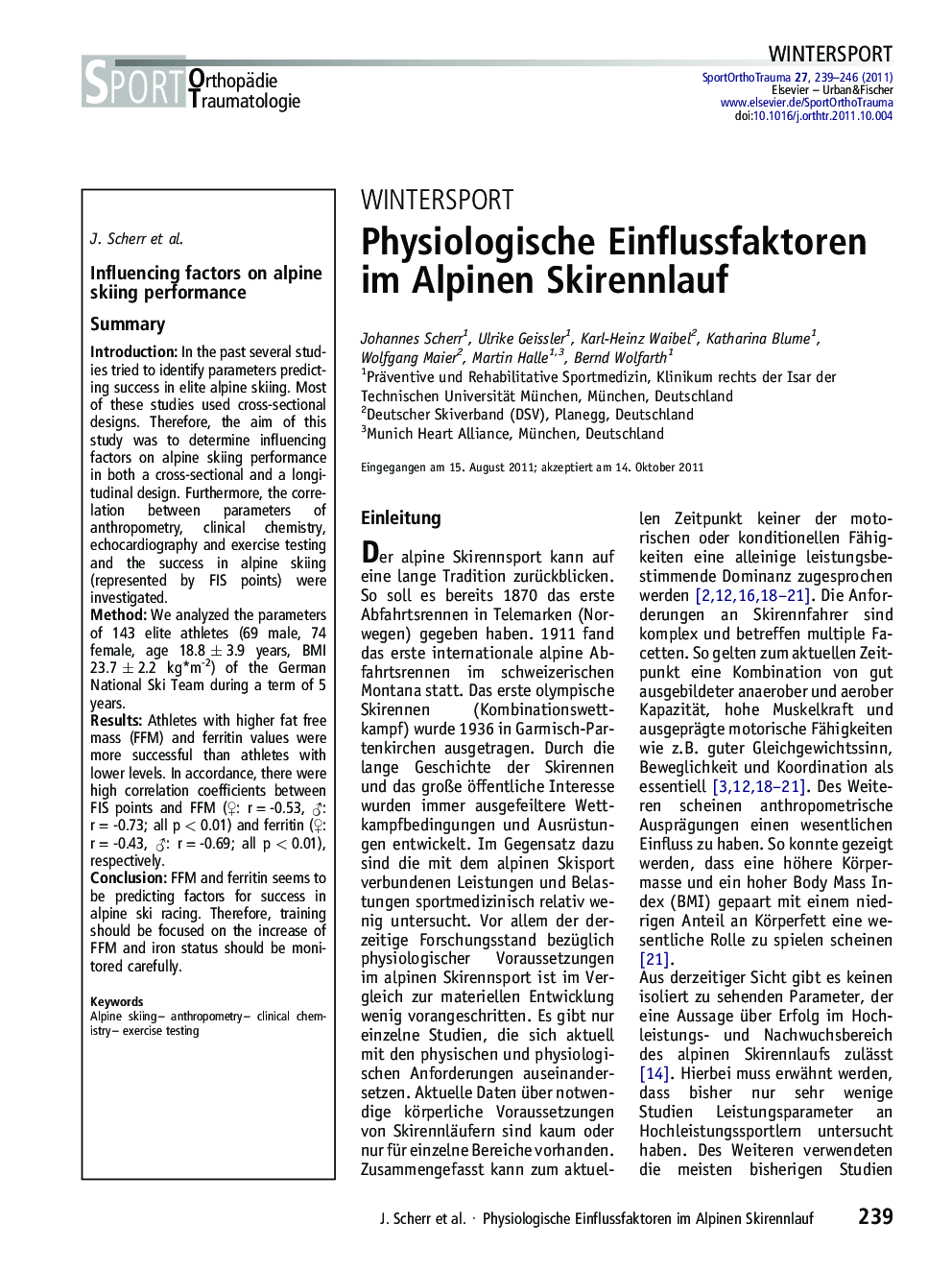| Article ID | Journal | Published Year | Pages | File Type |
|---|---|---|---|---|
| 2740606 | Sports Orthopaedics and Traumatology | 2011 | 8 Pages |
SummaryIntroductionIn the past several studies tried to identify parameters predicting success in elite alpine skiing. Most of these studies used cross-sectional designs. Therefore, the aim of this study was to determine influencing factors on alpine skiing performance in both a cross-sectional and a longitudinal design. Furthermore, the correlation between parameters of anthropometry, clinical chemistry, echocardiography and exercise testing and the success in alpine skiing (represented by FIS points) were investigated.MethodWe analyzed the parameters of 143 elite athletes (69 male, 74 female, age 18.8 ± 3.9 years, BMI 23.7 ± 2.2 kg*m-2) of the German National Ski Team during a term of 5 years.ResultsAthletes with higher fat free mass (FFM) and ferritin values were more successful than athletes with lower levels. In accordance, there were high correlation coefficients between FIS points and FFM (♀: r = -0.53, ♂: r = -0.73; all p < 0.01) and ferritin (♀: r = -0.43, ♂: r = -0.69; all p < 0.01), respectively.ConclusionFFM and ferritin seems to be predicting factors for success in alpine ski racing. Therefore, training should be focused on the increase of FFM and iron status should be monitored carefully.
